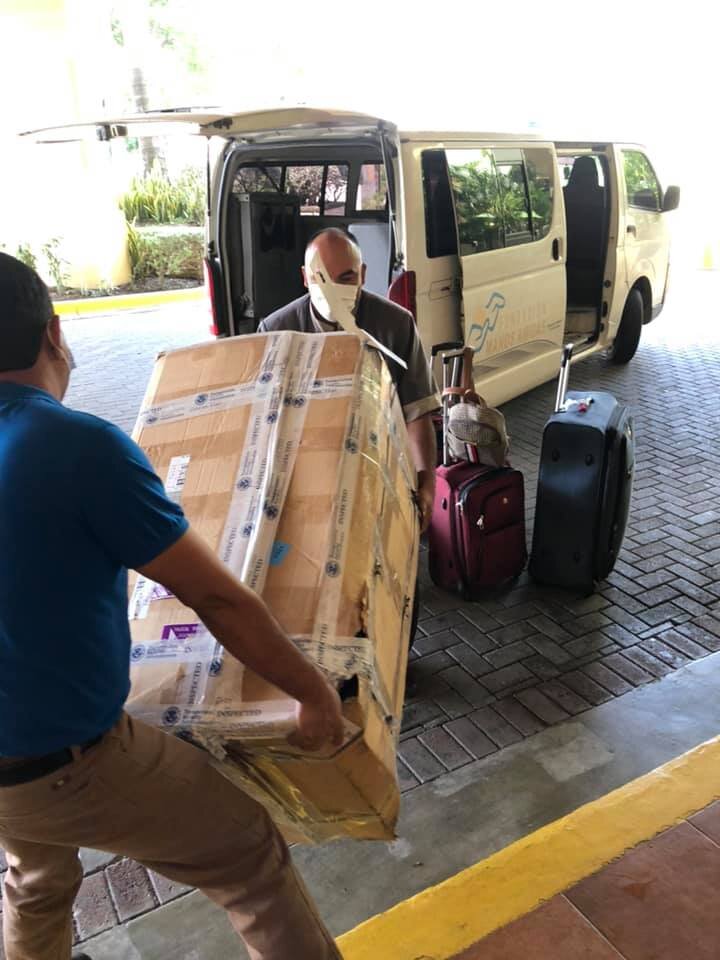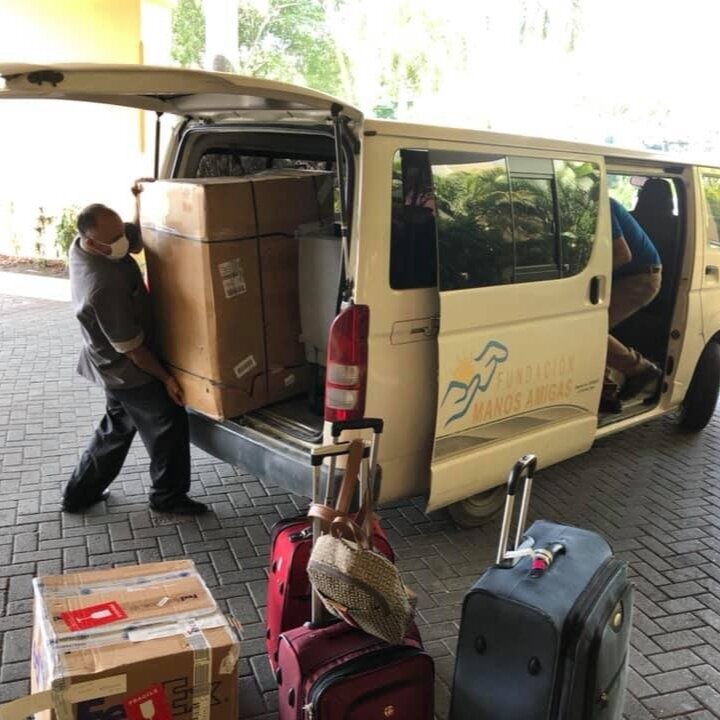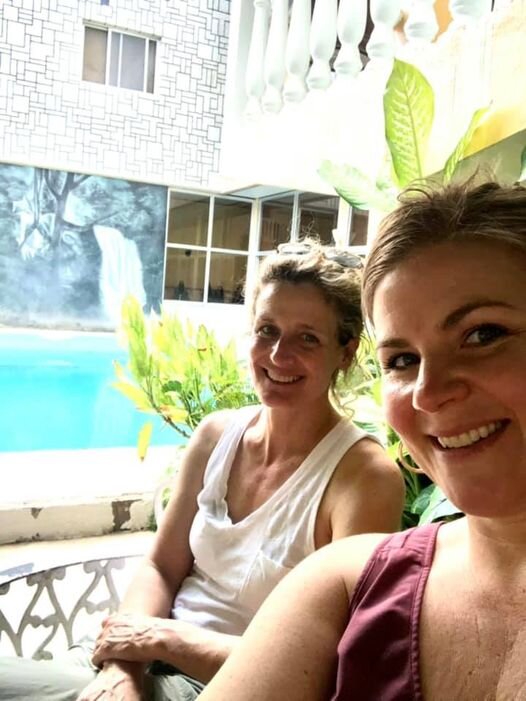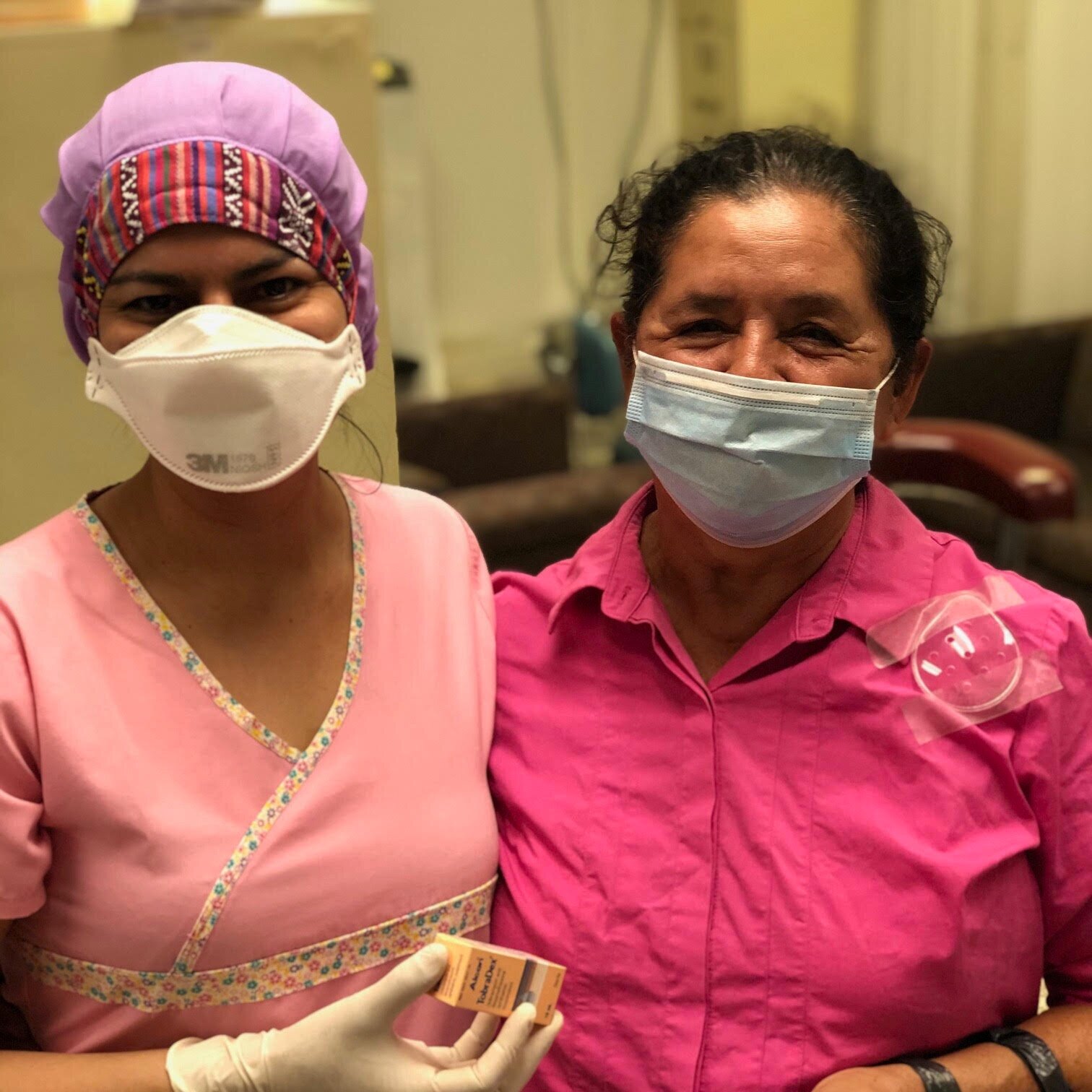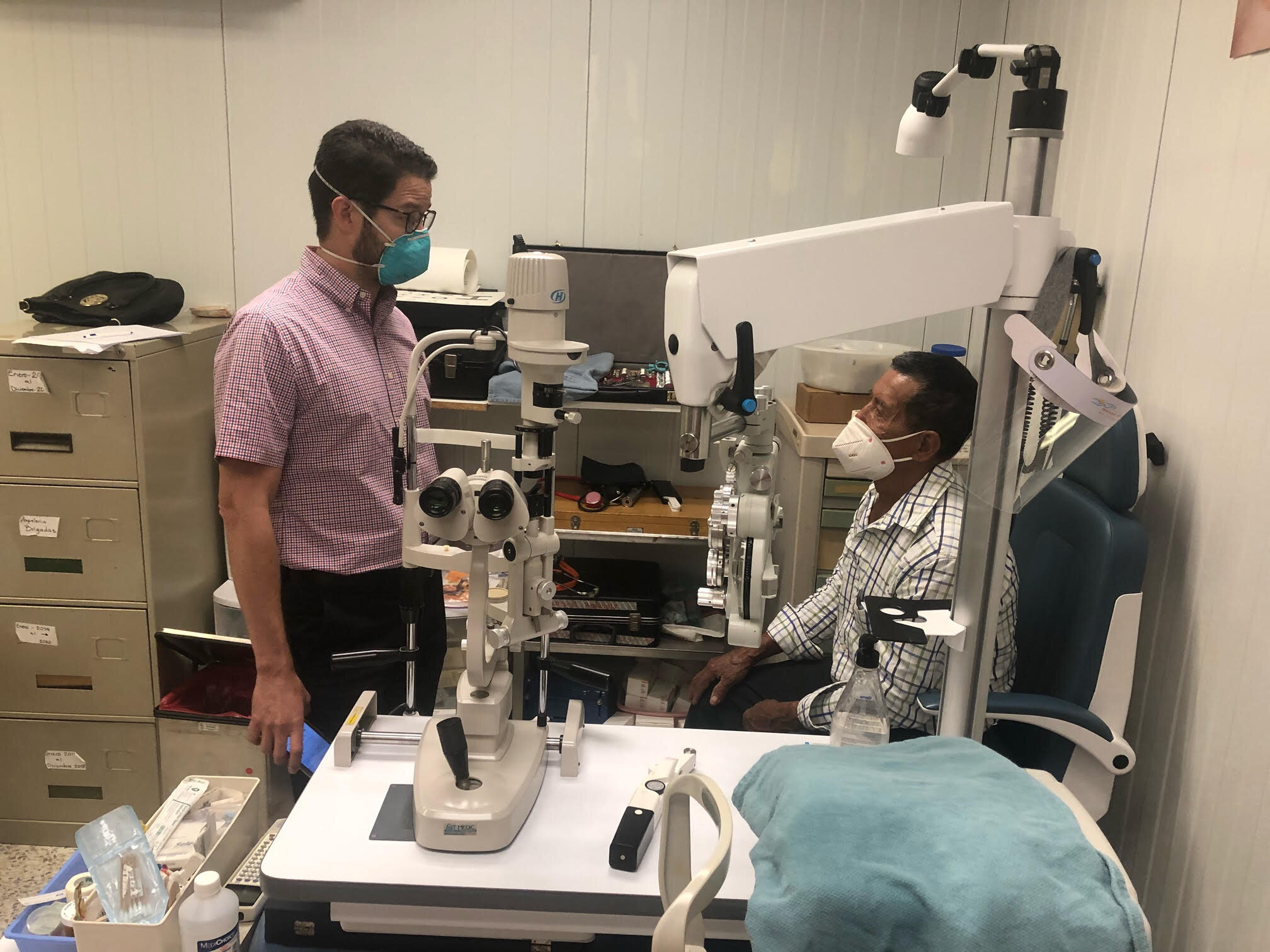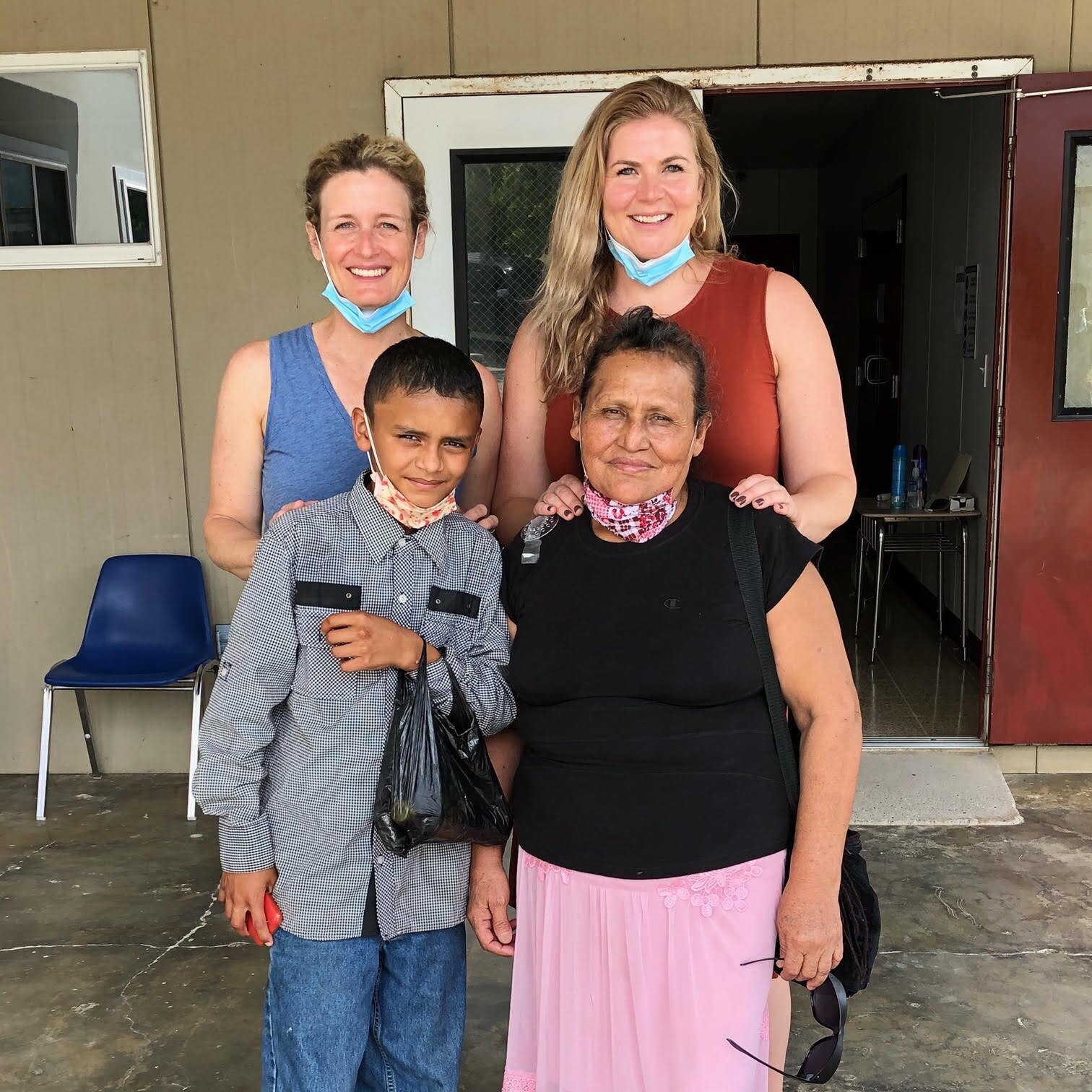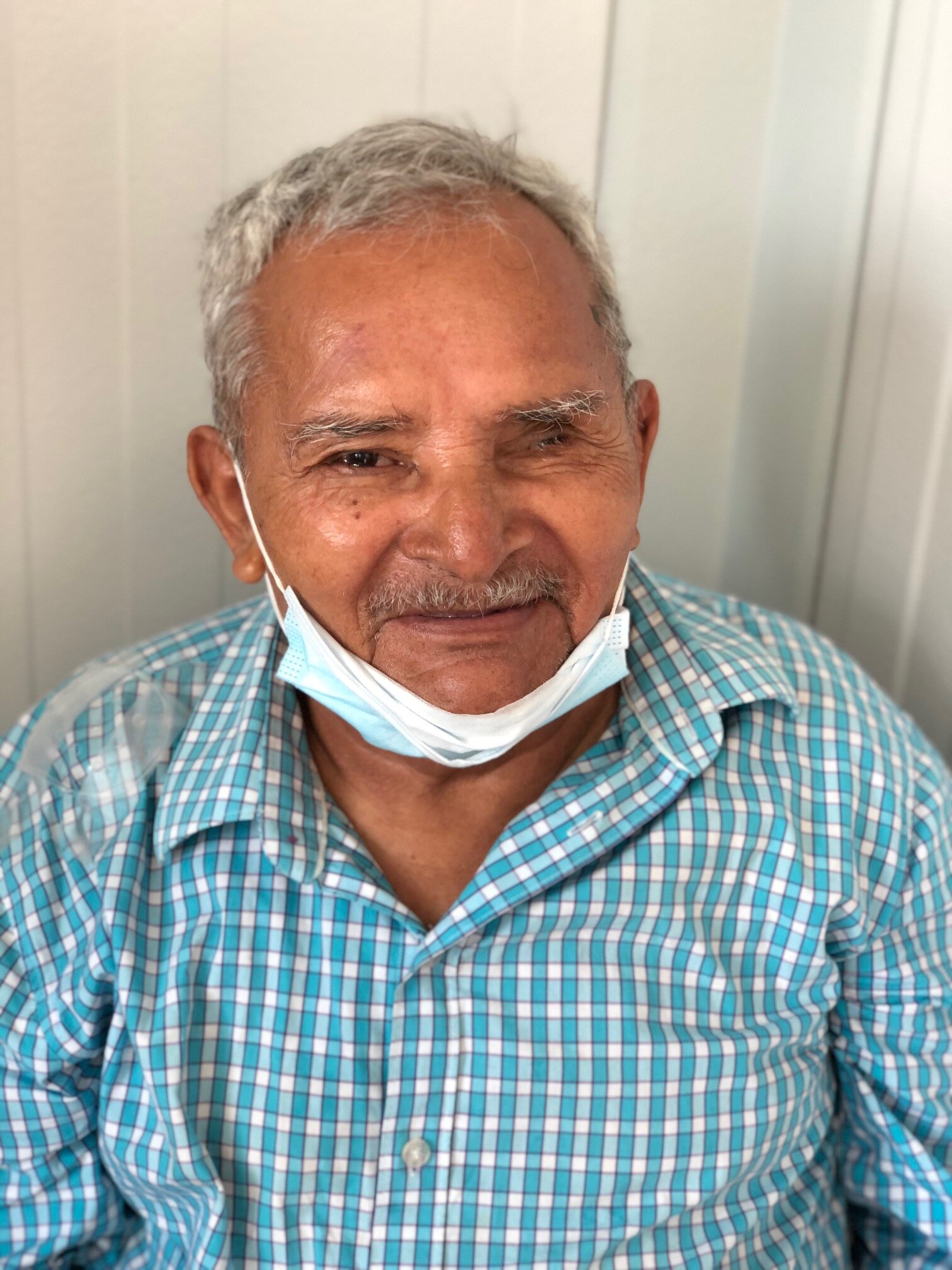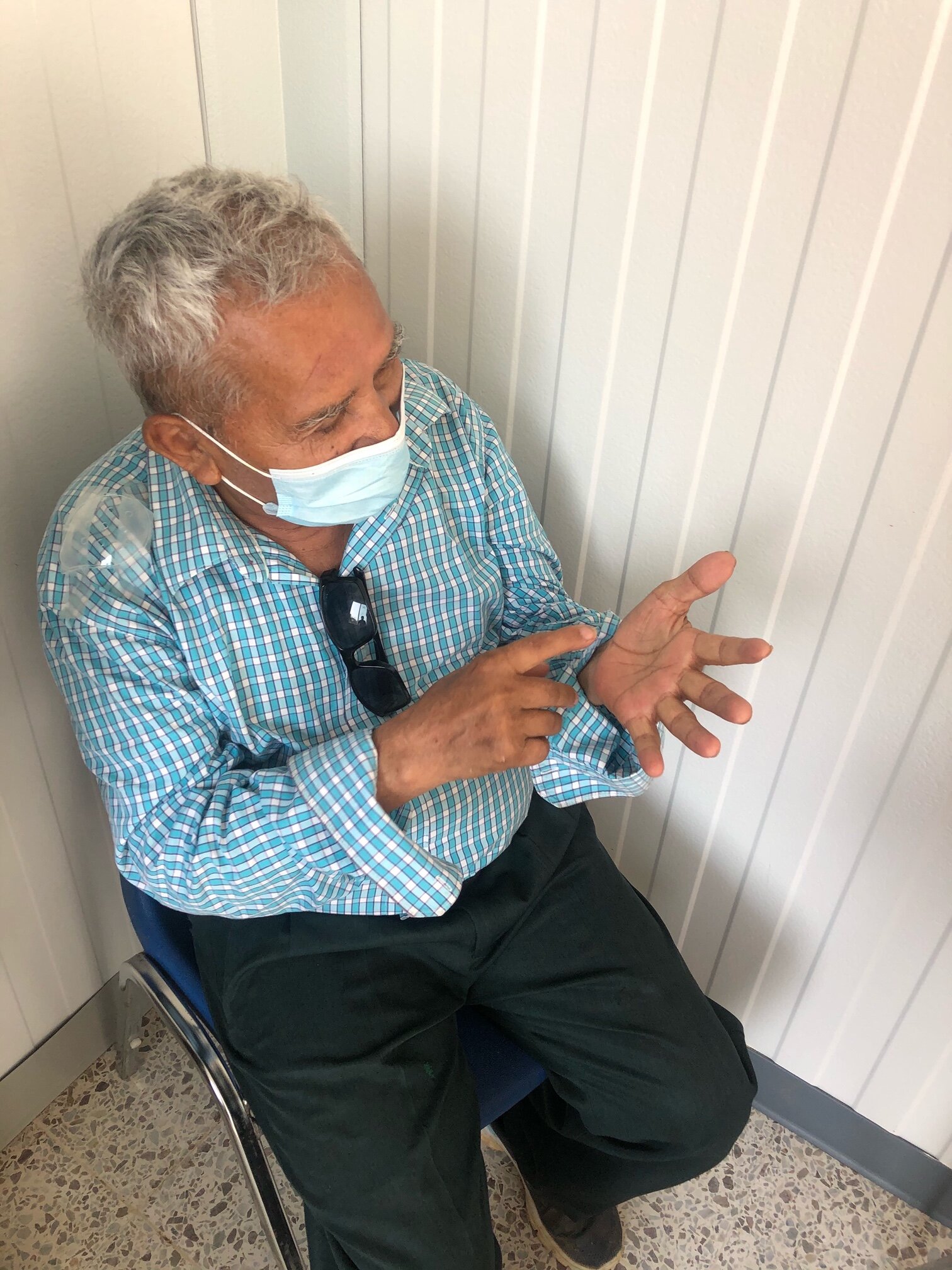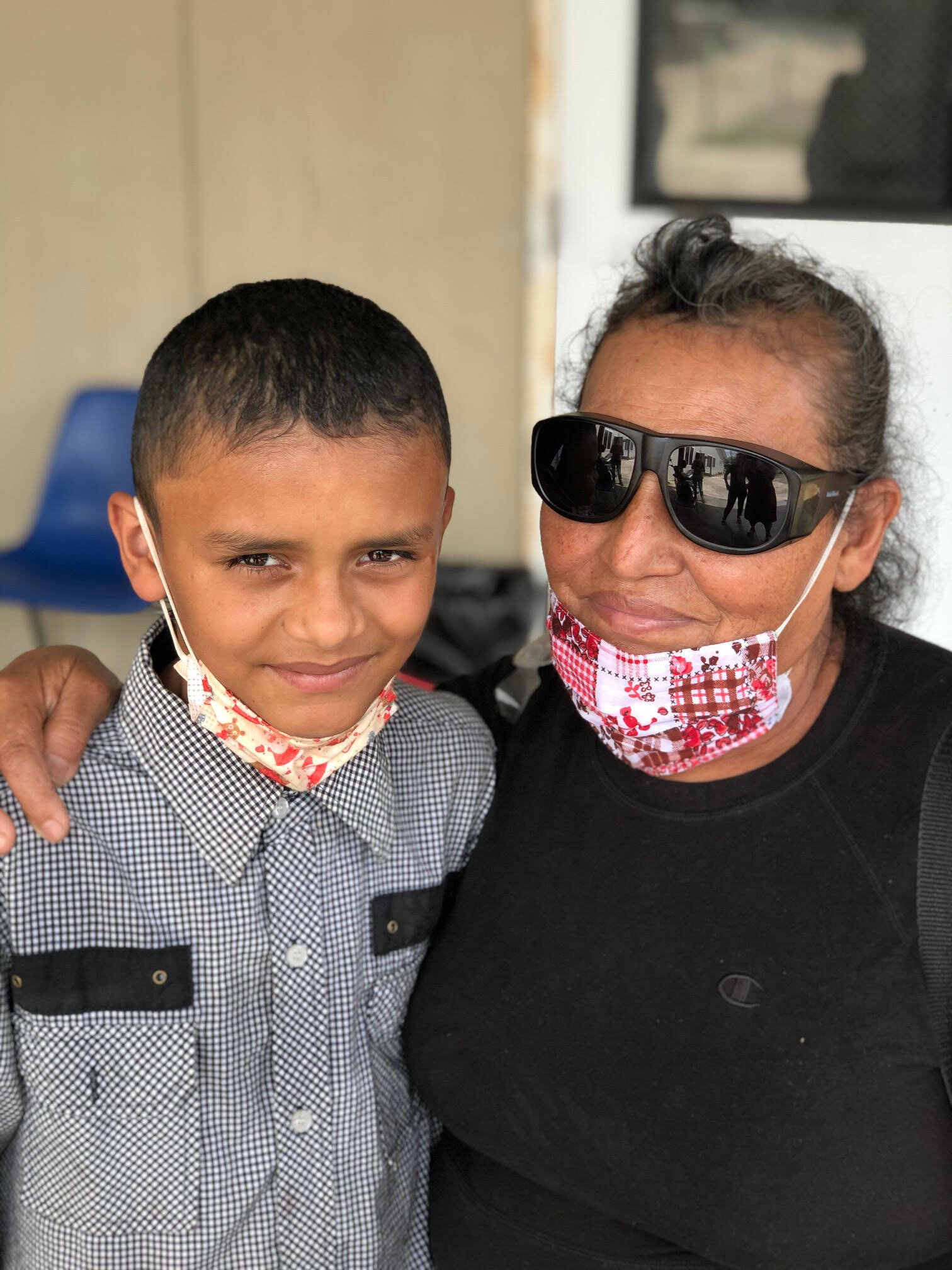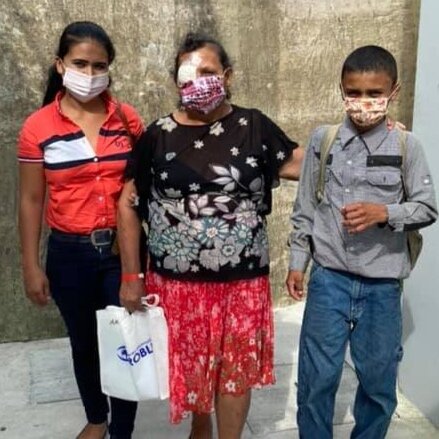Vision Health International “Mini Brigade” Returns to Manos Amigas
By Mike Tysowsky
How do you explain blessings? On April 19, Meaghan Frisbee and Nikki Fedoravicius from Vision Health International (VHI) arrived at the Manos Amigas clinic to deliver a biometer or Inter Ocular Lens (IOL) machine VHI had donated. The clinic is very fortunate to have such a valuable instrument.
Beginning in the 1960s, cataracts were removed through the technique of phaco-emulsification, in which an ultrasonic probe is inserted into the eye, essentially liquefying the lens and suctioning it out through a tube. The surgery is typically performed as an outpatient procedure, often with no stitches and only anesthetic drops to numb the eye. Crystalline inter ocular lenses (IOLs) are then inserted. IOLs are artificial implants used to replace the heavily clouded human eye lens.
Lens implants are inserted in a rolled-up state by the ophthalmologist and then unfold into their proper shape inside the eye itself. There is always the question of lens implant strength or magnification. The Zeiss IOL Master provided by VHI can measure and calculate with precision so as to provide the absolute best lens power for each patient. The IOL Master is the “Gold Standard” for ophthalmologists, The Manos Amigas clinic is one of the very few places in the country where patients with few financial resources can obtain cataract surgeries, not to mention that Honduras only has 84 ophthalmologists serving an entire country of more than nine million people.
While at the clinic, the VHI team assisted by Karen, our vision care technician, were able to join in with Dr. Robles, our partnering ophthalmologist in Santa Rosa, to evaluate and assist him while he performed cataract surgeries on 11 patients. These are difficult times in Honduras as the country struggles to obtain a supply of COVID-19 vaccines, the first of which is only available to inoculate physicians.
Below are stories of three of the eleven patients who received the gift of sight during this “mini brigade.”
Don Ismael lost one eye years ago in a farming accident and the other developed a cataract. For years, he hasn’t been able to see his neighbors’ faces as they walked by his house. He was so excited to show the VHI team the morning after his surgery that he could even see the lines in his hands. He told Meaghan Frisbee and Nikki Fedoravicius about the things he saw out the clinic window…the cars, the palm trees, the people walking by. He couldn’t wait to get home and look around his house!
Dona Lila has had a very tough life. She gave birth to 11 children and six of them have died. She raised them on her own and is currently raising two grandsons, one of whom came with her to Manos Amigas. She has lost her vision over the past couple of years and must rely on her boys to cook and work to support the family. She was very proud of the good cooks they have become, and even shared their favorite recipes. Apparently they make a mean loaf of bread. With restored vision, she is looking forward to working again—making tortillas, washing clothes, selling trinkets—so her boys won’t have to work so hard.
This woman lost one eye years ago and developed a serious cataract in the remaining eye. She wasn't able to see at all. When she got out of surgery, she was excited to show the others in the waiting room how her vision had improved. She was able to see the empty chairs, walk across the room and sit down without help from anyone else. Sometimes we don't always think about the little daily tasks, like sitting down in a chair, that patients are able to do after receiving the gift of sight, but these really are meaningful accomplishments.
To hear shouts of “I can see!” and “I can see again!” are blessings to be counted—and how do you count blessings? 1, 2, 3….11—the blessed ones. Our thanks to Meaghan Frisbee, Nikki Fedoravicius and Dr. Randy Rottman of VHI and to Dr. Robles for making these blessings possible.

